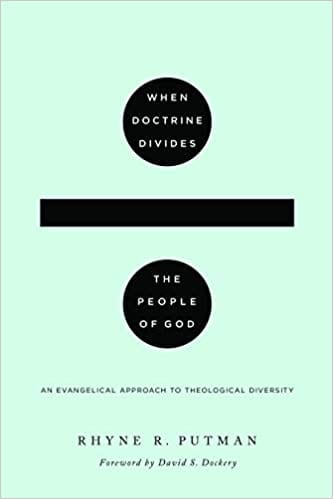BEN: One of the things I have noted again and again, perhaps especially when it comes to conservative Protestants is that they approach the text in very individualistic, sometimes even narcissistic ways, assuming that the text means ‘what it means to me’. Underlying this is the problematic notion of ‘the individual right of interpretation’, an idea I don’t find anywhere in the canon, not least because all these Biblical books were written in cultures where corporate identity was primary and individual identity entirely secondary, written by people who said things like ‘if anyone is in Christ, they are a new creation’—not outside Christ or his body, but in Christ. What safeguards do you commend as a hedge against individualistic readings of the Bible?
RHYNE: To read the Bible theologically means we must read the Bible within the church, alongside the great Tradition. We all read from tradition in different senses. Whether or not we do so consciously, all orthodox Christians read within the capital-“T” “Tradition. Unless we are doing something like reverse engineering Christology in Historical Jesus research, we usually presume Nicene and Chalcedonian orthodoxy in our regular readings of the text. But we also interpret Scripture from little-“t” traditions: the broader Arminian tradition, the broader Calvinistic tradition, the Methodist tradition, the Baptist tradition, etc. And we know well that even within these traditions there are smaller and smaller subsets of theological conviction that influence the way we read the Bible.
We must avoid the mirror errors of giving tradition primacy over the text and giving the tradition no place whatsoever in interpretation. The Protestant catchphrase sola Scriptura does not mean “no creed but the Bible”—- a statement which ironically is very much a creed from an anti-intellectual, anti-history tradition. We don’t want to find ourselves in a place where we cannot critique tradition. Just because Augustine or Luther said it doesn’t make it gospel. But we also need to tread carefully when our interpretations significantly diverge from tradition. There’s a reason why tradition has sticking power when so many other individual interpretations of the Bible do not.












